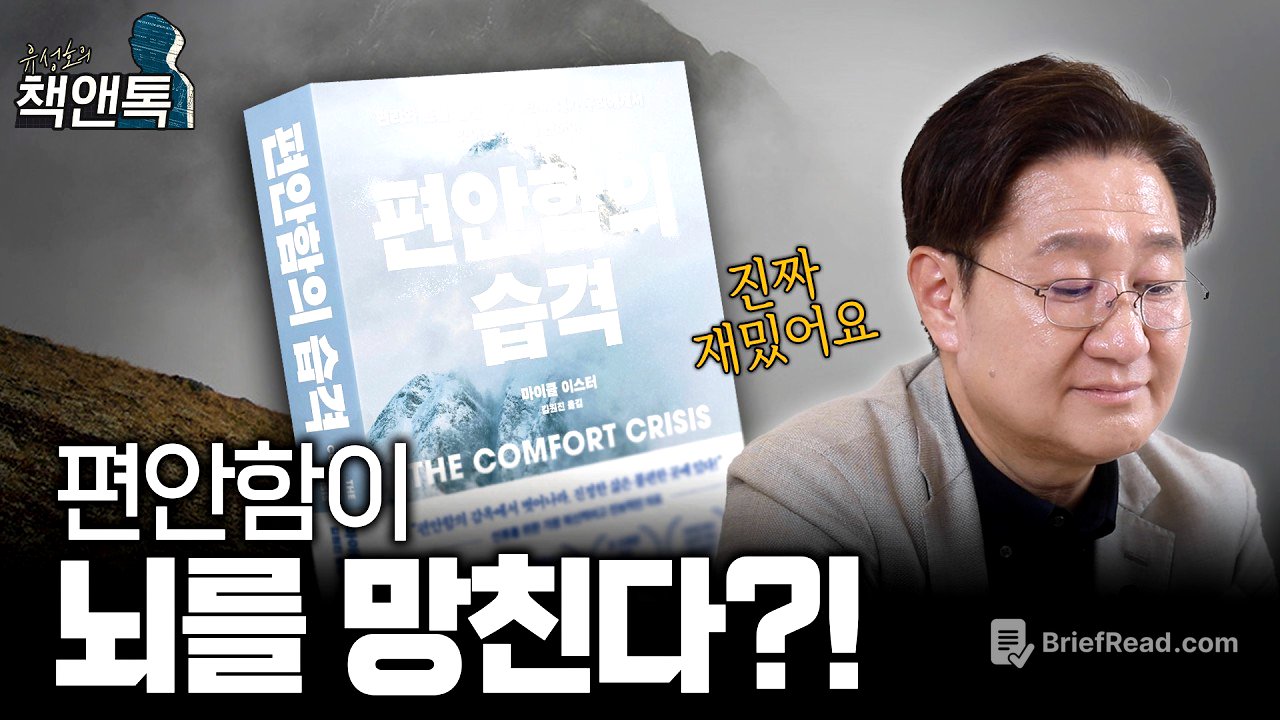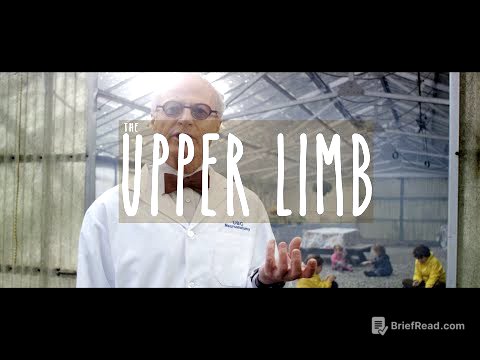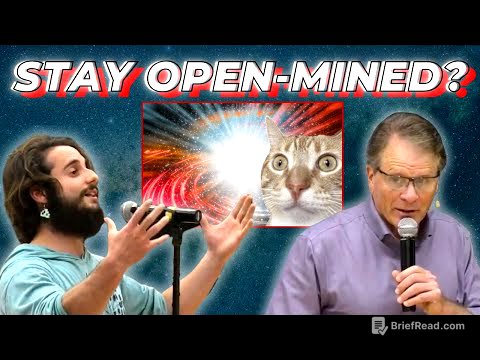TLDR;
The video discusses Michael Easter's book, "The Comfort Crisis," which explores the negative impacts of modern comfort on our lives. The book follows Easter's 33-day journey into the Arctic, highlighting the benefits of discomfort, boredom, and nature. It suggests that embracing challenges and discomfort can lead to increased resilience, creativity, and a deeper appreciation for life.
- Modern comfort diminishes resilience and creativity.
- Experiencing discomfort, boredom, and nature can be beneficial.
- Facing death and understanding mortality can enrich life.
Introduction [0:00]
Yoo Seong-woo introduces "The Comfort Crisis" by Michael Easter, a book his wife recommended. The book details the author's experiences during a 33-day trip to the Arctic, where he confronts various discomforts. Yoo found the book interesting and wants to share its insights.
The Author's Journey [1:05]
Michael Easter, a journalism professor and explorer, embarks on an uncomfortable journey to the Arctic. Accompanied by experienced adventurers, he learns about the benefits of discomfort. The journey involves chasing reindeer for food, highlighting the contrast with modern food abundance and the historical importance of hunger.
The Downsides of Comfort [1:56]
Modern comforts, such as air conditioning and readily available food, have only been prevalent for about 100 years. While these comforts offer convenience, they may lead to decreased patience and perseverance. The speaker references the concept of a "snowmobile mind," which lacks resilience and the ability to overcome challenges.
Heroic Tales and Modern Weakness [6:29]
Historically, heroes and enlightened figures like Jesus and Buddha underwent trials and discomfort to achieve greatness. Modern society's avoidance of physical and mental challenges may lead to weakness and fragility. The speaker argues that constant comfort prevents individuals from experiencing the growth that comes from overcoming adversity.
The Author's Personal Transformation [8:12]
Michael Easter was an alcoholic with a troubled family history. He realized he didn't want to continue living that way. This realization led him to seek discomfort and adventure, ultimately changing his life. Experiencing discomfort, boredom, and loneliness led to positive changes, which he found were scientifically supported.
The Arctic Experience [9:45]
The journey to the Arctic involves practical preparations like acquiring hiking gear and freeze-dried food. Once in the Arctic, the author faces challenges such as digital deprivation and loneliness. The lack of digital devices forces him to confront boredom, which leads to unexpected benefits.
The Science of Boredom [11:41]
Boredom weakens the insula, the part of the brain responsible for focus and goal-setting. While modern life encourages constant focus, humans need a balance between focused and unfocused modes. Boredom allows the mind to wander, fostering creativity.
Creativity and Nature [14:03]
The author's boredom in the Arctic leads to increased creativity. Being surrounded by nature also has a positive impact, increasing immunity and potentially treating mental disorders. The speaker emphasizes the importance of reconnecting with nature.
The Discovery of Hunger [16:46]
The book highlights the importance of experiencing hunger. Modern society rarely allows people to feel truly hungry, which can have negative health consequences. The author's experience with hunger in the Arctic leads to a deeper understanding of dopamine, serotonin, and the digestive system.
Facing Death [17:41]
The Arctic journey forces the author to confront the concept of death. He shares a story about a monk in Bhutan who emphasizes the importance of acknowledging death to live a more meaningful life. Recognizing mortality allows individuals to appreciate the present and connect with others.
Overcoming Addiction and Embracing Discomfort [20:55]
The author's experiences in the Arctic help him overcome alcoholism. The discomfort, loneliness, and exposure to nature prevent him from relapsing. He moves to a place where he can be closer to nature, embracing a lifestyle that includes discomfort.
Recommendations and Conclusion [22:04]
The speaker recommends "The Comfort Crisis" to those accustomed to a comfortable urban life. He suggests that embracing discomfort, boredom, and nature can lead to personal growth and a more fulfilling life. The translator of the book was also influenced by its message, moving to the Taebaek Mountains to live a more natural life.









![92 Little Tricks to Talk to ANYONE [full summary]](https://wm-img.halpindev.com/p-briefread_c-10_b-10/urlb/aHR0cDovL2ltZy55b3V0dWJlLmNvbS92aS85b0M1Q2puS1MyRS9ocWRlZmF1bHQuanBn.jpg)